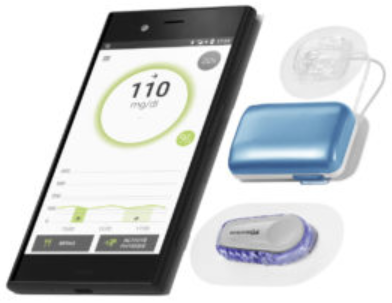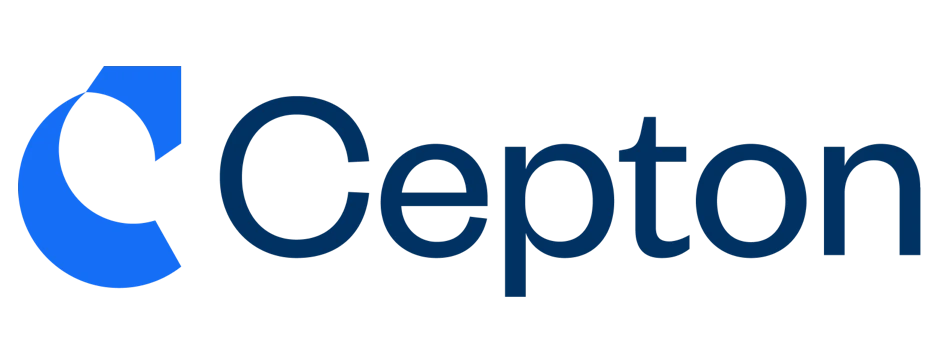Authors: Gill Morisse, Marc-Olivier Bévierre, Karl Neuberger
Reading time: 6 minutes
Why hasn’t the industry produced yet in a massive way these famous medical devices supposed to revolutionize medicine? On the occasion of the publication by the French HAS (Haute Autorité de Santé – French National Health Authority) of the first standard for the evaluation of connected devices embedded in AI, Quantmetry** and Cepton* are launching an ambitious cycle of articles and research to understand how these technologies will transform medicine.
Connected medical devices with artificial intelligence are still timidly gaining a foothold in the world’s healthcare systems. Far from the wave announced two years ago when the U.S. Food and Drug Administration (FDA) gave the green light for the marketing of the first medical device (IDx-DR, which allowed the automated detection of diabetic retinopathy based on images of the back of the eye), the deployment of these new cutting-edge technologies has yet to be confirmed in the field.
This timid step in the healthcare system takes place despite the promises repeatedly put forward by the major industrial players and start-ups working in the field, which often mix the contribution of digital and artificial intelligence.
What promises are we talking about?
The first promise is: these devices allow doctors to continuously monitor biological indicators obtained in a real-life context, instead of the traditional physiopathology examination (scanner, ECG, etc.). It is easy to imagine the value of this data in cardiology or diabetology, where environmental or behavioural factors are known to have a decisive influence on the evolution of the pathology.
Another aspect of this progress, this time largely driven by artificial intelligence, is the possibility for patients to benefit from systems that will allow for a finely tuned individualisation of care according to their activity and physiological needs. The treatment will adapt to the patient and not the other way round. Insulin pumps and any other device that automates the administration or recommendations of treatments will enable a profound change in the medical practice. One example is the DBLG1 device produced by Diabeloop, which ensures to automate and personalise insulin delivery. The system, for the first time in France, was approved in 2020 by the HAS for reimbursement by health insurance, a sign that the regulators have fully grasped the benefits that such tools bring to the patients.
In a way, the connected devices with AI will allow the transition from preventive surveillance (regularly scheduled visits) to adaptive and predictive surveillance; a relaxation of the rules of physical control in favour of better reactivity of the medical staff in the event of a problem.
Another promise relayed by the manufacturers is the educational value of the new tools that enable patients to become actors in their own care and to reduce the mental burden of complying with certain treatments. In 2014, an IMS Health France (nowIqvia) /CRIPstudy estimated the cost of non-adherence to medication at more than 9 billion euros. This study, although not very recent, shows that the financial and human stakes of compliance are key issues.
Finally, these new types of connected devices make it easier to set up the management in HAD (Hospital at Home) to facilitate and secure the home care of patients with all the moral, medical (nosocomial illnesses in particular) and of course financial benefits, given the extremely high cost of an overnight hospital stay.
Although these promises are still too rarely kept, many signals are showing now that we are on the verge of a profound transformation of medicine and the emergence of artificial intelligence at the heart of care pathways.

The diabeloop system to regulate
insulin supply for type 1 diabetics
A convergence of factors that heralds a paradigm shift.
The health crisis has accelerated the deployment of digital devices adapted to the new context of repeated lockdowns; remote consultation platforms, connected devices etc… The use of these new digital tools by both patients and medical staff all over the world demonstrates that these practices are quickly penetrating the landscape of healthcare systems. From the first month of lockdown, the monthly number of teleconsultations in France has increased 15-fold, from 40,000 to 600,000. This shows that society was ready to take advantage of these tools and that it will be difficult to turn back the clock, as this new type of care provider/patient relationship has proven effective (fight against isolation, short decision cycles, early diagnosis, etc.; provided, however, that traditional face-to-face medicine is maintained).
In the wake of the development of these teleconsultation tools, increasingly comprehensive telemedicine platforms are being developed. They will manage the entire consultation cycle, from the uploading and sharing of data from connected medical devices to the prescription of a personalized care pathway (Implicity or Moon to name but a few). This highly integrated vision of the care pathway will generate unprecedented, high-quality data that will form new, intelligent connected devices, capable of acting on the basis of massive historical data collected directly at the heart of the care pathway, without any disruption.
Finally, there is also rapid technological innovation which makes it possible to market increasingly high-performance devices: new types of sensors are appearing, calculation capacities are multiplying and are now embedded directly on the devices’ processors (no more need for stable and continuous connectivity). Moreover, there is the emergence and cross-fertilisation of new skills from the fields of robotics, electronics, digital technology, physics, data science, etc.
We are therefore at a point where all the signals converge so that companies promoting intelligent connected devices have started to invest massively in this sector:
- Support from the regulator, with the introduction of incentives (In France we can mention: Forfait Innovation, BPI investments, Etapes programme, Assessment Standards, etc.).
- Appropriation of digital tools in the care system by both patients and medical staff.
- Technological maturity.
CEPTON and Quantmetry are launching a series of articles to understand the stakes of this transformation.
It is in this “pre-revolutionary” context that CEPTON*, a strategy consulting firm specialising in health, and Quantmetry**, a consulting firm and creator of artificial intelligence, have decided to join forces, by publishing a series of articles on this burning topic.
CEPTON and Quantmetry are convinced that these tools, which carry the seeds of a fundamental change in the way medicine is practiced, will affect healthcare professionals and regulatory authorities at the heart of their profession; it is therefore through them that this revolution will or will not take place.
The ambition of this collaboration is also to involve the actors of this this transformation: healthcare professionals, scientists, industry, regulatory institutions and, of course, patients associations.
*About Cepton:
CEPTON is a European consultancy firm specialising in the field of health. CEPTON was created in 2006 by Jean Reboullet, former Senior Partner at Roland Berger. Jean was joined a few months later by Francis Turina-Malard, former consultant at the Boston Consulting Group, then by Marc-Olivier Bévierre, who spent 15 years in the pharmaceutical industry (Novartis and Janssen) in various scientific and commercial positions, and a few years later by Philippe Cocude, with more than 25 years of experience in Healthcare consulting and general management.
CEPTON’s consulting offer covers all general management issues applied to the healthcare industry: corporate strategy, organisation, transactions and performance. CEPTON is a European-style “Strategy Boutique” that meets the expectations of executives and investors with regard to consulting: seniority, expertise, partnership and trust. We offer a rare combination of skills combining strategy consulting and transaction support.
Their long experience in leading international strategy consulting firms and in the healthcare industries has enabled CEPTON’s partners to develop a corpus of highly advanced and proven methodologies. All our consultants are specialised in the healthcare sector and are able to respond quickly and efficiently to the essential questions of the executives who place their trust in us.
**About Quantmetry:
Quantmetry is a Paris-based consulting firm that has been working with major groups for nearly 10 years to implement artificial intelligence that transforms professions.
